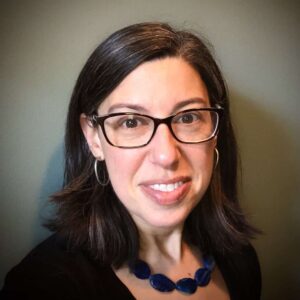This blog is for informational purposes only and should not be considered financial advice.
Do you know about ABLE Accounts? If you are a parent or caregiver to a person of any age with a disability, an ABLE Account is a great tool for supporting your family member without risking their benefits. The federal Achieving A Better Life Experience Act was passed in 2014 to create this opportunity.
What are ABLE Accounts?
ABLE Accounts are savings accounts for people with disabilities. Many benefits for people with disabilities, like Medicaid and SSI, have income or resource limits. With an ABLE account, families can set aside up to $100,000 for a family member with disabilities without risking those benefits.
As of 2024, you can put up to $18,000 per year into an ABLE account. This is a great option for families who want to make sure their family members have some savings to help support them.
Who qualifies for an ABLE Account?
Any child or adult who has a disability that started before the age of 26 is eligible for an ABLE Account. In 2026, the age limit will rise to 46.
You can qualify for an ABLE Account if:
- You already get SSI or SSDI benefits, OR
- You meet the Social Security Administration’s (SSA’s) definition and criteria for disability and you have a letter of certification from a doctor.
Read more about how the SSA evaluates disabilities for children and for adults.
How can my child or family member use the money in an ABLE Account?
People with disabilities can use their ABLE savings for Qualified Disability Expenses (QDE). QDEs are defined broadly as anything that benefits the person with the disability, even if the expense is not directly related to the disability.
Here are some of the things you can pay for with ABLE Account funds:
- Education:
This can be tuition or fees for a private school or college, including books or summer programs.
You can also use money from an ABLE account to cover expenses related to job training or support.
- Health care:
Funds from an ABLE account can cover health care costs not covered by your insurance, including premiums, deductibles, and co-pays. They can also cover things like Assistive Technology and services like gym memberships or wellness programs.
- Transportation:
ABLE funds can pay for public transportation, ride-share services like Lyft, and taxis.
You can also use the money to buy a car that the person with a disability will drive or that someone else will use to transport them.
Bonus: this is a great way for a young adult to buy a car and build their credit.
- Housing and living expenses:
These may include rent or mortgage, home repairs, food, and even utilities like electricity.
Computers, tablets, and smartphones may all be bought with ABLE Account funds.
Parents can contribute monthly to their kid’s ABLE account to allow them to supplement their housing costs – but there are special rules about this, so ask your ABLE program when you set it up.
How do ABLE Accounts affect taxes and benefits?
- Contributions to ABLE Accounts are not tax-deductible at the federal level. However, some states have made these contributions deductible at the state level. Check your own state’s tax rules to see if you get an income tax deduction.
- You do not have to pay taxes on the interest you earn on the money in your ABLE Account.
- If you are applying for SSI or Medicaid, money in an ABLE Account does not count towards the countable resource limit of $2000.
- If your family has too much money for your child to qualify for SSI or Medicaid, opening an ABLE account may help them qualify.
- If you are applying for SNAP, LIHEAP, or other financial assistance, you will not be disqualified based on money in an ABLE Account.
- If your child is going to college, money in an ABLE Account does not reduce how much financial aid they qualify for when you fill out your FAFSA.
Ready to open an ABLE Account for your child or family member? Check out the ABLE National Resource Center’s Roadmap to Enrollment.
If you want to learn more, see the ABLE Youth Transition Toolkit.




